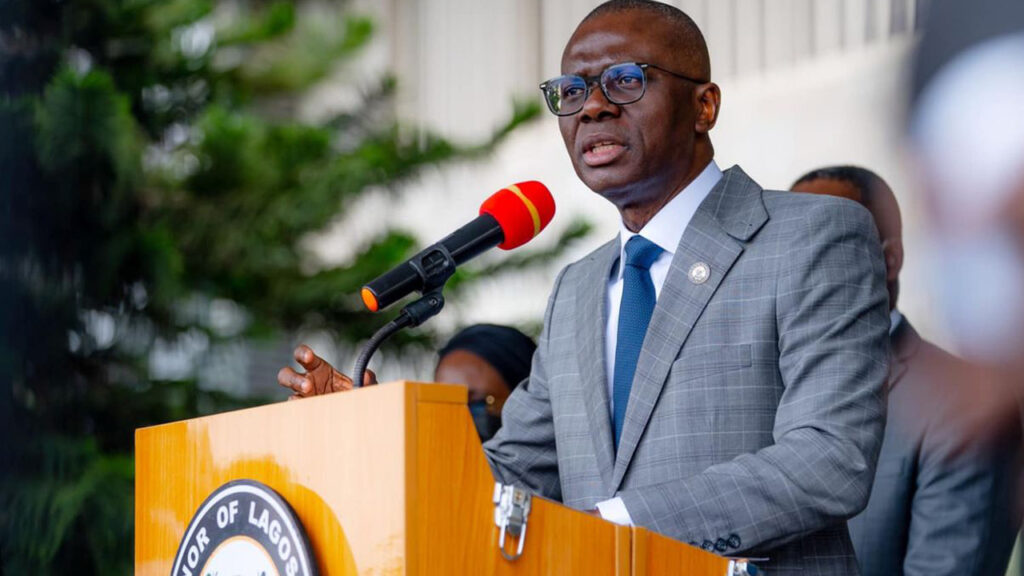
Since it was created on May 27, 1967, by virtue of the States (Creation and Transitional Provisions) Decree No. 14 of 1967, which restructured the federation into 12 states, Lagos State has continued to grow on diverse fronts.
The Lagos Municipality at that time was administered as a Federal Territory by the Federal Government, through the Federal Ministry of Lagos Affairs, as the regional authority, while the Lagos City Council governed the City of Lagos.
Also at that time, the metropolitan areas (Colony Province) of Ikeja, Agege, Mushin, Ojo, Ikorodu, Epe, and Badagry were then administered by the Western Region Government.
But on April 11, 1968, the state began its journey as an administrative entity with Lagos serving the dual role of the state and federal capital respectively. Over the years, Lagos has grown in leaps and bounds as well as attaining different milestones, including a megacity status in 1995 when its population went above 10 million people, per UN-Habitat.
From that global city ranking of 31st in 1985, Lagos population exploded to 13.4 million in 2000 to become the world’s sixth megacity and Africa’s foremost urban centre and hub of national, regional and global socio-economic and political activities.
In 2003, many of the existing 20 local councils were split into Local Council Development Areas (LDCAs) for administrative purposes. Some of the 37 LCDAs created in 2003, by the Alliance for Democracy (AD)-led government of Senator Bola Ahmed Tinubu, which are still yet to be recognised by the Federal Government are Agbado/Oke-Odo, Agboyi/Ketu, Agege, Ajeromi, Alimosho, Apapa, Apapa-Iganmu, Ayobo/Ipaja, Badagry West, Badagry, Bariga, Coker Aguda, Egbe Idimu, Ejigbo, Epe, Eti-Osa East, Eti-Osa West, Iba, Odi Olowo/Ojuwoye, Ifako-Ijaiye, Ifelodun, Igando/Ikotun, Igbogbo/Bayeku, Itire Ikate, and Kosofe among others.
Even though the Federal Government still relates with Lagos State based on the original 20 local councils, Lagos State has been administering the grassroots through a combination of the 20 local councils and the 37 LCDAs.
An LCDA is an administrative unit created by state governments to pursue state-specific development agenda and administrative convenience. The former Speaker of the Lagos State House of Assembly, Olurunimbe Mamora, who is now the Minister of State for Health, while speaking after 30 lawmakers voted in support of the 37 LCDAs creation on June 18, 2002, commended his colleagues for taking the step, saying that the newly created entities would bring government and development closer to the grassroots.
Even though their origin became a highly contentious issue when it first happened in 2003, the Supreme Court ruled in favour of their existence. To add to the controversy trailing these LCDAs, last July, a group identified as Concerned APC Progressives kicked against conducting election in the 37 LCDAs since the 1999 constitution recognises only 20 local councils in Lagos state.
In a petition they submitted to the APC national caretaker committee led by Mai Mala Buni, “The petitioners charged that whereas Local Council elections can only be validly held in the recognised 20 local government councils in Lagos State, it would amount to the total disregard of the 1999 Constitution of Nigeria if the national body of the All Progressives Party is dealing with Lagos on the grounds of 20 local government councils, and the Lagos Chapter of the party on its own volition is dealing within itself based on 57 local government councils,” the statement reads.
In the petition signed by Kabir Onaolapo and Olajide Olukogbe, the chairman and secretary, respectively, the group said: “If this is allowed without the party at the national level taking urgent steps to correct the anomaly, it might grievously affect and undermine the existence of the political party in the state.”
Of course, that is history now and the election went on successfully. However, beyond the council chairmen emerging and occupying offices as has been the case over the years, some residents are not convinced that LCDAs existence has brought development closer to the people.
For Bemigho Awala, a resident, judging from all available indices and social developmental metrics, besides political gains made during the creation of the LCDAs 20 years ago, residents have not felt any impact.
Awala added: “The political challenge that local councils generally have, where many state governors have rendered them as mere appendages are what has affected them. So, I can say that not much value has been added to governance to the point that people can truly say our LCDA is working.
“In terms of real and actionable development that has bearing on social development – health, education, social and recreational platforms, LCDs need to do a lot more,” the communication consultant said.
But Edidi Shamsudeen Ayodeji, an engineer thinks otherwise. For him, LCDAs creation remains a variant of the dividend of democracy, especially when the right man is at the helm of affairs.
According to him, while the Odi-Olowo Ojuwoye Local Council Development Area has been flourishing, that cannot be said of the Mushin Local Council, which he alleged has not been blessed with the right leaders. However, if the council had not been split into two, the generality of Mushin would have been retrogressive.”
On LCDAs compounding the administrative cost at the local council, Ayodeji stated that it might be true because of the type of system being run in the state, adding that local councils in Lagos State were viable, which means they can be sustained with quality leadership, even without allocation from the Federal Government.
“Most revenue points in local councils have been taken up by the state government. So, they are left with lockup shops and other insignificant revenue sources. The only problem that I see is the task force on traffic, illegal packing of vehicles and vehicle abandonment, which are being used for political patronage to sustain loyalty. These are the people that we see committing crimes here and there. Most council staff are being paid for sitting in their office doing nothing.”
He stressed the need for residents of council areas to ensure that only people of a proven track record are elected into local councils. Those elected must possess a requisite qualification that would make them function effectively. Local councils must be allowed to control resources within their council areas, just as they must open up more functional area offices to further bring governance to the people,” Ayodeji stated.
The Programme Manager, Community Life Project, Francis Onahor, on his part noted that issues that affect the constitutionally recognised councils across the country, including poor leadership, inadequate funds, and misappropriation of funds were also plaguing LCDAs.
“Another big issue there is transparency concerns as nothing is known about funds that accrue to them or what they are used for. Like other councils across the country, LCDAs’ budgets are treated as secret documents and are not open to scrutiny. But despite all these, we know that local councils in Lagos State all signed up to the International Public Sector Accounting Standards (IPSAS), and one of the attributes of this is the need for public engagement in local council budgeting process. I’m not sure this is being done.”
To make them deliver on their mandate, Onahor said: “The LCDAs need to be more creative in engaging citizens. When we did our social accountability work in Lagos State and got the grassroots to prioritise their needs and submit to the LGs/LCDAs, we saw that there was a reduction in the level of mistrust between government functionaries and the people. We also saw that projects were being implemented.
“For instance, in Odi-Olowo LCDA, the advocacy visit paid to the chairman ensured that the continuation and completion of a road project that had been abandoned for close to six years. The LCDAs can hold a series of community town hall meetings, not political town halls with card-carrying members. A meeting where residents can review their challenges, and seek solutions to their problems.”
Another resident, Nurudeen Banjoko, stated that the creation of the 37 LCDAs has added value to governance in the state, especially as it has enhanced policies, taken government structures closer to the grassroots, and suburbs, which were hitherto unreached with the 20-LGA structure in place.
“The advent of LCDA has enriched and increased the quality of participation, and representation in governance as many have been opportune to bring their ideas to bear. It has also impacted positively on governance by expanding the administrative, political and economic reach of the state, a development that has brought about a stable socio-political and economically viable state.
“The claim that LCDAs are contributing to the increased administrative cost incurred by the state does not hold water because the argument is neither here nor there, even though overheads and emoluments are paid to members of staff and elected officials, a development, which has an incremental effect on the wage bill.”
Tunde Balogun, another resident believes that his LCDA truly brings governance closer to residents. “In Ifelodun LCDA, Fatai Shuaib Ajidagba, as chairman, did well in terms of internal and few major roads. Before this time, when it was Ajeromi-ifelodun Local Council, the Ifelodun axis didn’t get much attention.
“Secondly, the political space has been expanded, as more people can aspire to take up political offices. I don’t think that the existence of LCDAs has led to superfluity in government expenditure since the state is not getting additional allocation from the Federal Government. They only took finances from a surplus area to deficit zones through the creation of LCDAs. The state government should give the LCDAs more freedom, and not interfere in the execution of their traditional functions. The quality of work executed should reflect the cost.”
He suggested that people should be encouraged to participate in the governance process of the communities, while the political space should be as friendly as possible. The influence of godfathers should be minimised to attract the best hands.
“Civil society organisations should step up awareness about the need for good governance at grassroots, while anti-graft agencies like the Economic and Financial Crimes Commission (EFCC), and the Independent Corrupt Practices and Other Related Offences Commission (ICPC) should pay closer attention to council finances.”
The Chairman of Conference 57, the umbrella body of chairmen of the 20 local councils and 37 LCDAs, Mr. Kolade Alabi, who is also the Executive Chairman, Bariga LCDA, did not pick up his calls, nor did he respond to the text message sent to him regarding the benefits of LCDAs to Lagos residents 20 years on.













